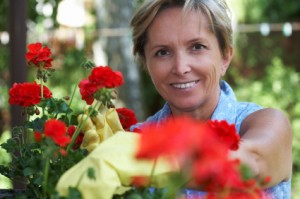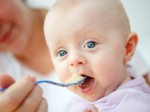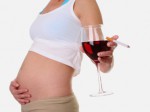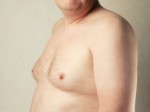 Menopause is a natural biological process women pass through and just like puberty it is not a medical illness.
Menopause is a natural biological process women pass through and just like puberty it is not a medical illness.
Although its associated with hormonal, physical and psychosocial changes in life, menopause isn’t the end of a woman’s youth or of her sexuality. A woman’s experience of Menopause is very individual and so there is no one “cure” for the range of symptoms that may be experienced.
What are the causes?
Menopause begins naturally when a woman’s ovaries start making less estrogen and progesterone. These are the hormones that regulate the monthly cycles of ovulation and menstruation. During a woman’s late 30s, the amount of progesterone her body produces diminishes, and the remaining eggs from her ovaries are less likely to be fertilized. Eventually menstrual periods stop, and she can no longer become pregnant naturally. Because this process takes place over years, menopause is commonly divided into the following two stages:
1. Peri menopause
A woman will begin to experience menopausal signs and symptoms, even though she is still ovulating. Her hormone levels rise and fall unevenly, and she may have hot flashes and variations in her periods (i.e. the menstrual flow may be irregular or heavier or lighter than usual). This is a normal process leading up to menopause and may last four to five years or longer.
2. Post menopause
Once 12 months have passed since her last period, a woman is deemed to have reached menopause. Her ovaries produce much less estrogen and progesterone, and they don’t release eggs. The years that follow are called post menopause
Other causes such as hysterectomy, chemotherapy and radiation therapy and premature ovarian failure can bring on menopause earlier than expected.
The signs and symptoms of menopause
Any of the following changes may be experienced:
Irregular periods
Decreased fertility
Vaginal and urinary changes
Hot flashes
Sleep disturbances and night sweats
Changes in appearance e.g skin becomes coarser and facial hair becomes more apparent.
Emotional and cognitive changes e.g. irritability, fatigue, decreased memory and diminished concentration
These symptoms have sometimes been attributed to hormonal fluctuations. Other factors such as sleep deprivation and stressful life events — (i.e. illness or death of a love one, grown children leaving home or returning home, and retirement) can contribute to these changes.
Fortunately, many of the signs and symptoms associated with menopause are temporary.
Health risks associated with Menopause?
Following menopause there is an increased risk of developing the following conditions:
1.Coronary Heart Disease
The declining oestrogen levels progressively disrupt serum lipid levels, increasing LDL-(bad) cholesterol by between 10-20 percent. Total cholesterol levels peak for women between 55 and 65yrs of age, roughly a decade after men.
2. Metabolic Syndrome
With menopause there is a change in fat distribution from the thighs to the waist. This development of visceral (abdominal ) fat is associated with the Metabolic Syndrome resulting in a falling in HDL (good) cholesterol and higher triglyceride levels. These changes combined with an increase in blood pressure and insulin resistance greatly increase a woman’s risk of developing heart disease, diabetes and some forms of cancer.
3. Osteoporosis
When oestrogen levels fall bone density begins to diminish and this can lead to osteoporosis when bones become brittle and break. This can also occur when women l(intentionally or otherwise) lose a significant amount of weight due to illness or eating disorders interrupting their normal periods. For more information read Lea’s article on Osteoporosis ‘the silent disease’ and Don’t let disordered eating ruin your performance
Possible treatments
Pharmaceuticals
Menopause itself requires no medical treatment. However treatments focus on relieving signs and symptoms and on preventing or lessening chronic conditions that may occur with aging. E.g. Hormone replacement therapy (HRT), Low-dose antidepressants, Gabapentin etc.
Some drug treatments can have side effects such as nausea, dizziness, dry mouth constipation so do contact your GP for professional advice.
Complementary and alternative medicines
Dietary supplements, such as dong quai, licorice, evening primrose oil and wild yam (natural progesterone cream) etc as well as various combinations of multivitamin supplements are just some of the products purported to assist with menopausal symptoms. Women should be guided by their doctor.
Dietary Recommendations
- Phytoestrogens. These are oestrogens that occur naturally in certain foods. The two main forms being isoflavones and lignins.
Isoflavones are found in soybeans, chickpeas and other legumes.
Lignins occur in flaxseeds, whole grains and some fruits and vegetables.Phytoestrogens were first noted when women in Japan and China, who ate diets high in isoflavones, reported fewer menopausal signs and symptoms and had a lower incidence of heart disease than women in the west.
As all these foods are good sources of dietary fibre and B group vitamins important for good nerve health, including them into the diet appears to do no harm. - Soy intake can help to reduce breast cancer and can be included into the diet having 1-2 serves each day of soy milk, tofu or soy and linseed bread.
- To reduce the risk of heart disease replace saturated and trans fats with polyunsaturated fat and increase plant sterol intake. For more information read Lea’s article on How to increase the “good fats” in your diet.
- Eat a balanced diet that includes a wide variety of fruits, vegetables and whole grains as these contain anti-oxidants that reduce free radical damage to cells. Refer to Lea’s article on exercise and increased anti-oxidants requirements.
- To help prevent osteoporosis aim for 1500 milligrams of calcium and 400 to 800 international units of vitamin D a day. For more information read Lea’s article Osteoporosis ‘the silent disease’.
- Limit alcohol as this not only increases a woman’s body weight but also her risk of developing breast cancer. For more information read Lea’s article on Nutrition and breast cancer.
- Body weight is important. Aim to achieve and maintain a healthy body weight
- Exercise regularly. Get at least 30 minutes of moderate-intensity physical activity on most days to protect against cardiovascular disease, diabetes, osteoporosis and other conditions associated with aging. If exercise levels exceed 60 minutes per day it is important that a women learn more about sports nutrition so that your increased needs for energy and nutrients are met and body stores replenished.
If you would like to access your nutrient intake or discuss any of these issues then contact us today.
References:
Lawton B. Menopause a New Zealand guide. 2006 Random House
Currie H. The menopause and cholesterol Perspectives Nutrition news and views. Issue 26 May 2009 ISSN 1446-6112.
Stewart M. The Phyto Factor 1999 Hodder































































Leave a Reply